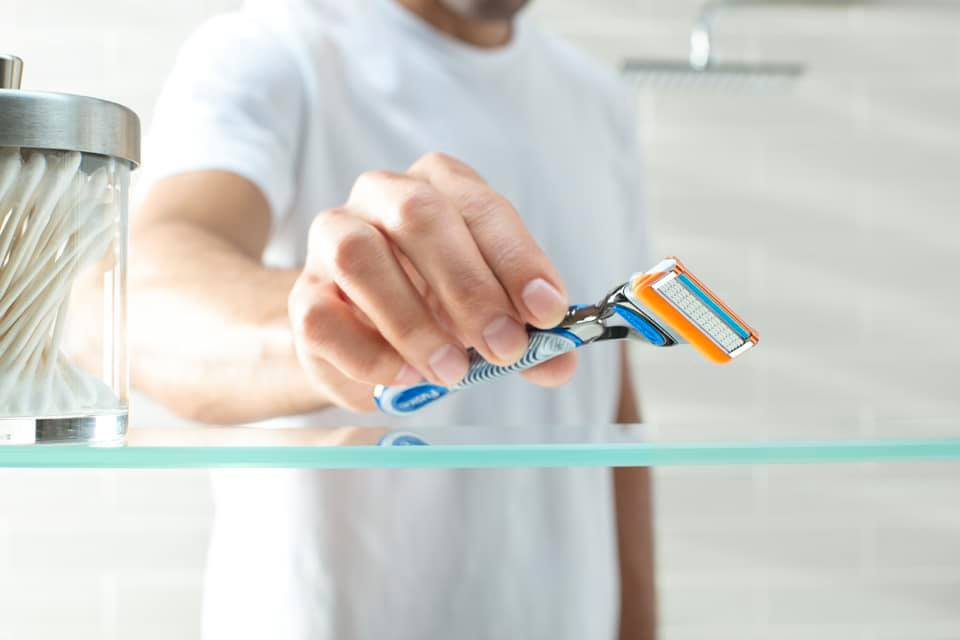
P&G shifts Gillette razor blade steel sourcing to India amid fears of tariff pressures in Trump 2.0: Report
Procter & Gamble has revamped its supply chain for the ultra-thin stainless-steel strips used in its Gillette razors, shifting sourcing to India, Reuters reported.
This change is aimed at safeguarding the company's profit margins from potential tariffs that US President-Elect Donald Trump might impose.
The specialized stainless steel used in Gillette razors, designed to minimize nicks and cuts, is produced in large quantities by only a few companies worldwide, none of which are based in the United States, according to P&G's filings with the US Commerce Department.
A Reuters analysis of import data from the past four years reveals that P&G has switched its supplier for stainless steel in its top grooming brands in the US, its largest market, opting for a more affordable manufacturer in India.
This move could help the company counter rising costs during Trump's second term, the report said.
The Cincinnati-based company now primarily obtains the steel for Gillette from New Delhi-based Jindal Stainless, according to the US import records for P&G subsidiaries, including Gillette.
Investors consider Procter & Gamble a leader in the competitive consumer products sector, with its margins outperforming those of competitors such as Kimberly-Clark.
P&G aims to maintain this position after Donald Trump assumes office in early 2025. During his first term, the company faced $1.4 billion in external costs, including tariffs that impacted profits.
A P&G spokesperson confirmed the company's collaboration with Jindal, but refrained from revealing details about business partnerships for being sensitive and competitive in nature, Reuters reported.
The spokesperson also clarified that "it would not be accurate to point to cost as the sole driver of any sourcing decision."
Historically, P&G sourced more expensive steel from Japan and Sweden for Gillette razors, according to import records shared exclusively with Reuters by ImportYeti, said the report.
The steep tariffs during Trump's first term increased the costs of Japanese and Swedish steel, though P&G later secured an exemption.
Trump, known for his fondness for tariffs, has proposed new tariffs targeting China, Mexico, and Canada, which has left consumer product makers like P&G on the defensive.
During an investor meeting on November 21, P&G's Chief Financial Officer Andre Schulten indicated that the company would need to adapt its supply chain based on how Trump implements tariffs.
Despite years of struggles, P&G's recent strategies to improve its grooming business have shown progress, stated the division's CEO, Gary Coombe.
Jindal, the world’s largest producer of stainless steel for razor blades, has primarily served non-US markets, according to an industry executive who was not authorized to speak publicly.
While Jindal has had a long-standing relationship with P&G, imports of Jindal steel into the US began in 2022, according to ImportYeti records.
Over the past 36 months, P&G imported at least 4,283,569 kilograms (4,721 US tons) of stainless steel from Jindal.
Jindal declined to comment specifically on the steel used in razor blades or P&G's Gillette razors.
However, Abhyuday Jindal, managing director of Jindal Stainless, stated that the company focuses on "creating value in their business" with pricing being their "last priority."
Earlier this year, P&G acknowledged Jindal as a top supplier that "consistently performed at high levels," according to an internal company blog.
The P&G spokesperson emphasized that the company continually seeks new suppliers globally that meet its needs, though very few do. P&G has not made substantial changes to its core suppliers.
Import records reviewed by Reuters show that P&G has reduced its imports from Japan’s Proterial and Sweden’s Alleima.
Imports from Proterial were down nearly 59% through October compared to 2023, and P&G has not received any steel from Alleima this year.
Gillette has worked with Proterial for over 50 years and with Alleima for more than 20 years, according to filings with the US Commerce Department.
Alleima did not respond to requests for comment, and Proterial declined to comment.
P&G’s grooming business, the smallest division by revenue, has faced challenges in recent years.
During the pandemic, sales declined as men grew beards and shaved less.
Support Our Journalism
We cannot do without you.. your contribution supports unbiased journalism
IBNS is not driven by any ism- not wokeism, not racism, not skewed secularism, not hyper right-wing or left liberal ideals, nor by any hardline religious beliefs or hyper nationalism. We want to serve you good old objective news, as they are. We do not judge or preach. We let people decide for themselves. We only try to present factual and well-sourced news.







